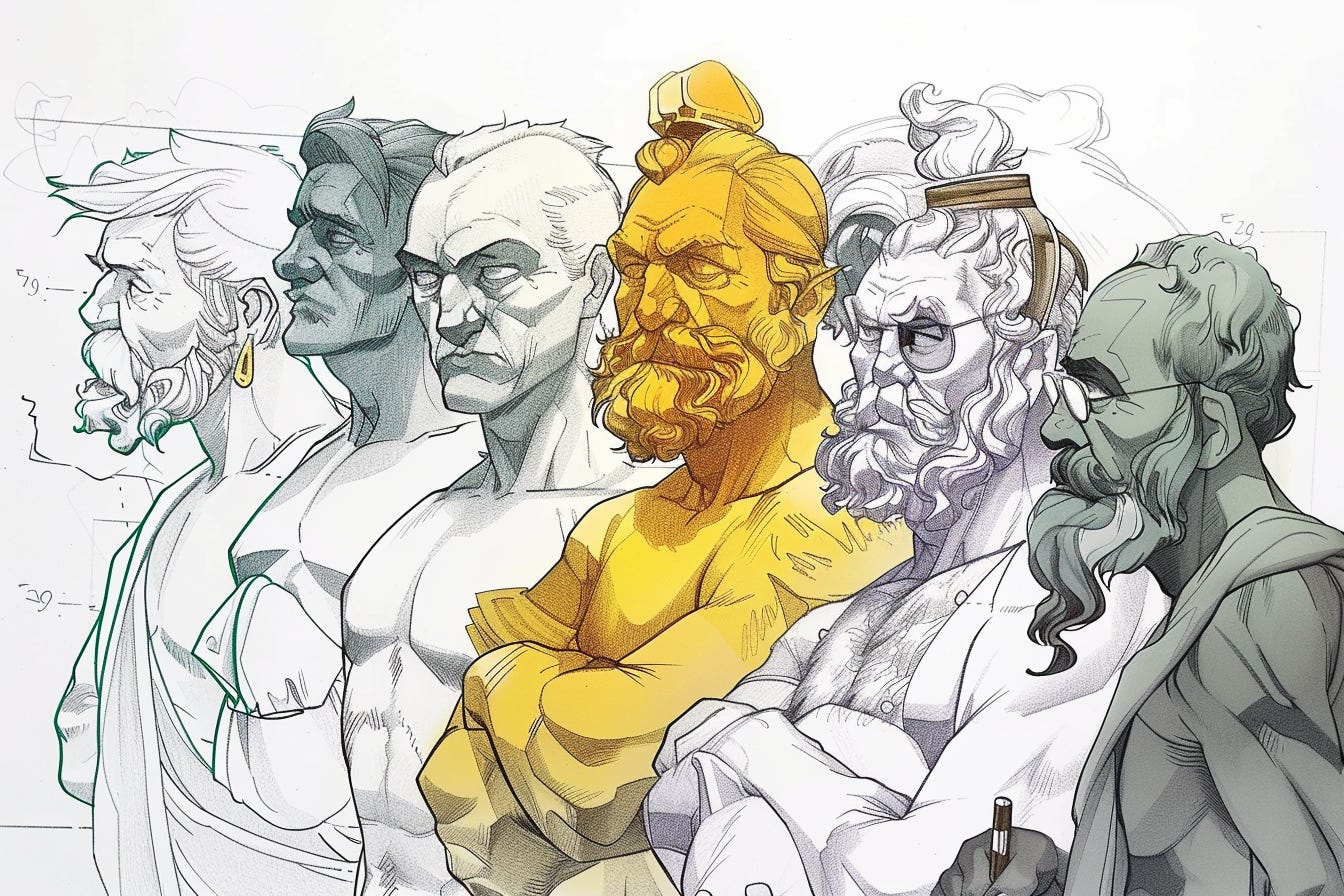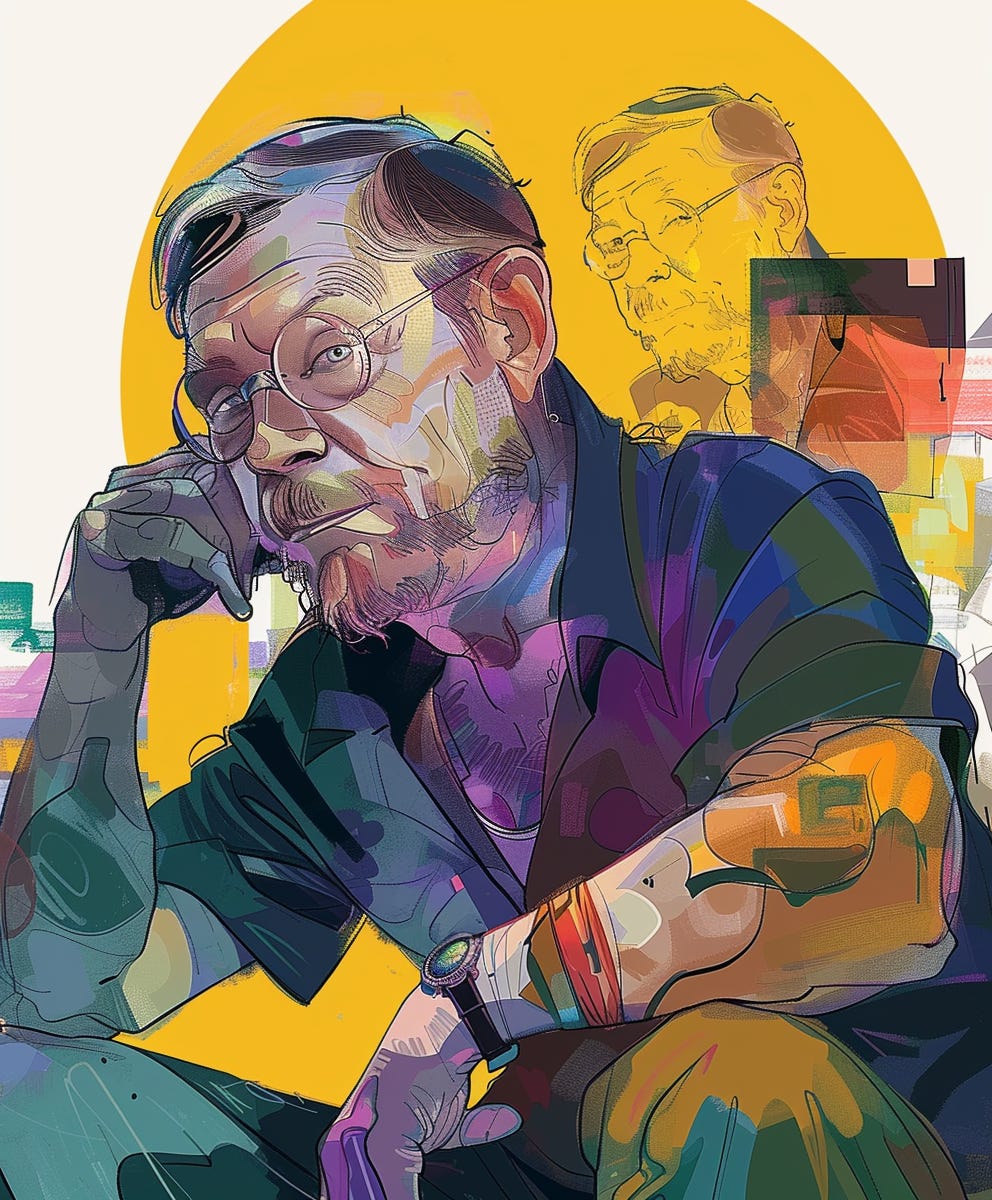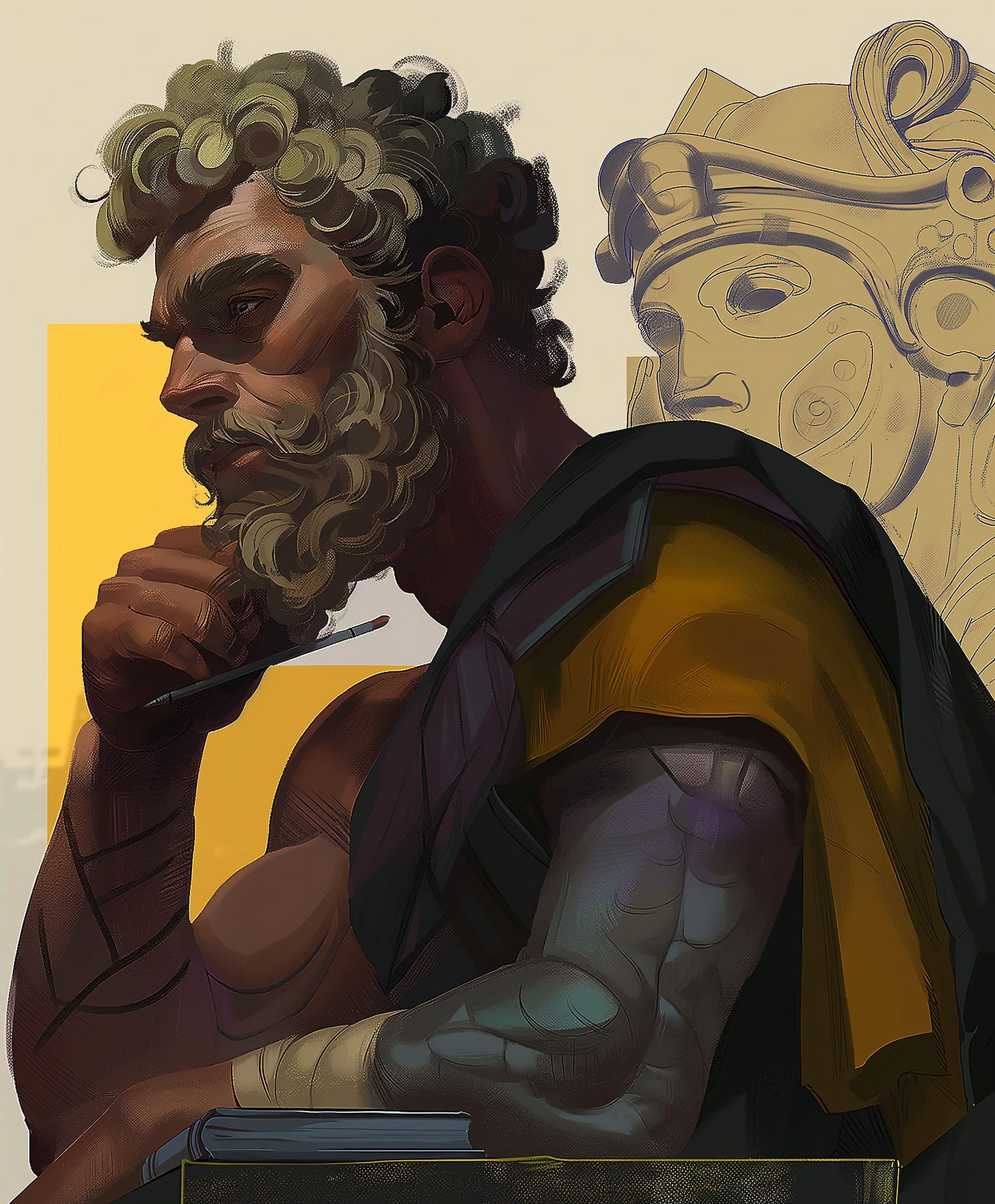To Live is to Die - The Death of Ego
Unshackled from the ego, we find limitless potential in the freedom of the present moment.
“I’m dead already - nothing bothers me anymore.
Anyone can praise me, anyone can talk shit about me. It doesn’t matter anymore.
As an artist, as a musician we can never seek people's approval - I play music because I love it, because I want to play music.”
- Eloy Casagrande
It is strange where inspiration comes from.
Neck deep in a YouTube rabbit hole - doing anything other than what I should be… I’ll just watch 1 more video and then I’ll go and do something productive.
Eloy Casagrande is, quite simply, an outstanding drummer. In a short interview about handling criticism received when leaving one band and joining another, Casagrande suggests to live as though you have a bullet in the brain - what he evokes here, is the death of ego.
The Ego: Our Fickle Life Companion
The ego is a construction of old ideas and stories we tell ourselves, about ourselves and to some degree - ideas that we think other people have about us. It is paradoxically both strong and incredibly fragile.
It defines us through a conglomeration of past beliefs, societal expectations and personal narratives.
It is how we think other people perceive us - how we want people to perceive us - and how we fear they may perceive us negatively.
The Double-Edged Sword of Praise
“Anyone can praise me… it doesn’t matter anymore.”
You might be asking - what’s wrong with praise?
Surely it’s a sign from someone that we’ve done something right… right?
Well… yes. It’s a sign that we’ve done something right, in someone's eyes, and they’ve summoned up the necessary energy to bestow praise upon us.
Take praise for what it is - appreciation, thanks. But, to be dependent on praise for your sense of self-worth is a treacherous path to tread.
Patting your ego on the back for all of its hard work - ensuring its presence for the foreseeable future - your ego will be keen to stand tall and proud, waiting for more reassurance.
Praise reinforces the ego.
Don’t get me wrong - receiving praise is nice. It’s always good to know that someone appreciates what you are doing. We’re not heartless automatons, after all. But be wary of what you do with that praise.
The thin veneer of praise coating our sense of self-worth causes the silhouette of our existence to become solid, reinforced by the narrative that our ego conjures up moment to moment. Made solid only to be buffeted by the harsh winds of criticism.
When left unchecked our ego is fully in charge of our memories and our imagination. Or at least our interpretation of our memories and our outlook of the future. When we identify with our ego we are some-one, we are some-thing. We are solid… we have a position to defend. We are susceptible to criticism. We can be easily offended if someone insults or attacks our position.
Find out what the Stoics say about the ego
The Liberation of Detachment
Letting go of these thought patterns liberates us from the shackles of our limiting sense of self - leaving us free to explore the endless possibilities and limitless potential of every moment, transcending the need for external approval.
“When we are nothing - we can be anything at any moment.”
This paradoxical statement captures the essence of true freedom. By embracing the concept of nothingness, we can dissolve the rigid structures of our ego. In this state, we are no longer bound by the expectations and judgements that once defined us. Instead, we become fluid and adaptable, capable of responding to life’s challenges and opportunities with an open heart and a clear mind.
Be mindful - be conscious, the ego cannot act when we are aware of it:
The moment you become aware of the ego in you, it is strictly speaking no longer the ego, but just an old, conditioned mind-pattern. Ego implies unawareness. Awareness and ego cannot coexist.
-Eckhart Tolle
Death is a stripping away of all that is not you. The secret of life is to "die before you die" --- and find that there is no death.
-Eckhart Tolle
True freedom and the end of suffering is living in such a way as if you had completely chosen whatever you feel or experience at this moment. This inner alignment with Now is the end of suffering. Is suffering really necessary? Yes and no. If you had not suffered as you have, there would be no depth to you as a human being, no humility, no compassion. You would not be reading this now. Suffering cracks open the shell of ego, and then comes a point when it has served its purpose. Suffering is necessary until you realise it is unnecessary.
-Eckhart Tolle
Eckhart Tolle’s insights on ego offer a roadmap to disentangling ourselves from this cycle of dependence. He argues that true awareness of the ego transforms it from a controlling force to a recognised pattern of the past.
This awareness is the first step towards freedom, for when we recognise the mechanisms of the ego, we can choose to step beyond them. This choice aligns us with the present moment, liberating us from the burdens of past and future projections.
Final Thoughts - Balance and Perspective
If we adopt this outlook we see that living as though we are already dead, is not the end but the beginning.
It is the stripping away of what is not truly us, revealing the true essence of ourselves, free from ego’s whims. Finding the balance where we can live accepting praise without letting it steer our lives, and handling criticism without letting it crush your self esteem.
As Marcus Aurelius reminds us:
“It is not death that a man should fear, but he should fear never beginning to live.”
This outlook encourages an existence living in alignment with our personal values, rather than being led by a fleeting desire for external approval.
An existence living free from the constraints of our ego’s constructed identity and the shadow it casts.









